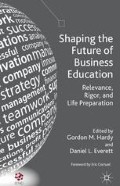Abstract
Creativity is widely recognized as an important, even essential, driver for society in general, and for the economy specifically. In its 2010 report, The Creative Economy, the United Nations stated that ‘adequately nurtured, creativity fuels culture, infuses a human centered development and constitutes the key ingredient for job creation, innovation and trade while contributing to social inclusion, cultural diversity and environmental sustainability’(2010, xix). In his 2008 book Who’s Your City, Richard Florida claims that the economic transformation we are undergoing today,
is bigger in scale than the shift from farms to factories a century or two ago. As a consequence (advanced economies) are shedding manufacturing jobs and generating jobs in two other economic sectors — low-paid service work in everything from retail sales to personal service, and high-paid professional, innovative and design work in what I call the creative sector of the economy. (p. 102; emphasis added)
If business school graduates are to positively affect society in general and the economy specifically, one of the primary goals of business schools must be to develop and nurture the creative skills of their students.
Access this chapter
Tax calculation will be finalised at checkout
Purchases are for personal use only
Preview
Unable to display preview. Download preview PDF.
References
Amabile, T. (1997) ‘Motivating Creativity in Organizations: On Doing What You Love and Loving What You Do,’ California Management Review, 40(1), pp. 39–58.
Bentley University Philosophy Department, Business Ethics: Corporate Social Responsibility, www.bentley.edu/offices/registrar/undergraduate-courses
Florida, R. (2008) Who’s Your City? (New York: Basic Books), p. 102.
Hayden, S. (2011) “‘1984”: As Good As It Gets,’ Adweek, January 30.
National Science Foundation, ‘Award Abstract #0941131: Integrating Earth and Environmental Science Education into a Business Curriculum Using Technology Enhanced Learning’
New England Association of Schools and Colleges, Standard 4.30.
Postrel, V. (2012) ‘How Art History Majors Power the U.S. Economy,’ Bloomberg.com, January 5.
Schultz, William (2011), ‘Confessions of a Lapsed Historian,’ April 1.
Sternberg, R. J., Kaufman, J. C., and Pretz, J. E. (2002) The Creativity Conundrum: A Propulsion Model of Kinds of Creative Contributions (New York: Psychology Press).
Texas Education Code, Section 61.0515. ‘Semester Credit Hours Required For Baccalaureate Degree’
United Nations (2010) United Nations Creative Economy Report (www.unctad.org/creative-economy), p. xix.
Wolf, G. (1996) ‘The Next Insanely Great Thing,’ Wired, February.
Editor information
Editors and Affiliations
Copyright information
© 2013 Andrew B. Aylesworth
About this chapter
Cite this chapter
Aylesworth, A.B. (2013). Creativity and Fusion: Moving the Circles. In: Hardy, G.M., Everett, D.L. (eds) Shaping the Future of Business Education. Palgrave Macmillan, London. https://doi.org/10.1057/9781137033383_18
Download citation
DOI: https://doi.org/10.1057/9781137033383_18
Publisher Name: Palgrave Macmillan, London
Print ISBN: 978-1-349-44148-8
Online ISBN: 978-1-137-03338-3
eBook Packages: Palgrave Business & Management CollectionBusiness and Management (R0)

